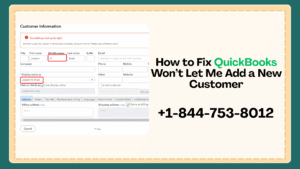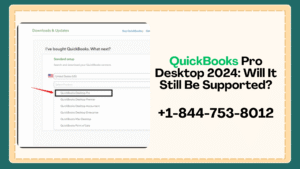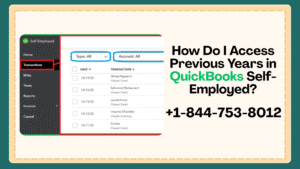In today’s dynamic business environment, effective job cost tracking is crucial for maintaining profitability and ensuring accurate financial reporting. Whether you’re a small business or a large enterprise, tracking job costs accurately can make or break your bottom line. This is where powerful tools like QuickBooks Time and QuickBooks Enterprise come into play, providing comprehensive solutions for tracking time, expenses, and job costs seamlessly. In this comprehensive guide, we’ll delve into how you can leverage the synergy between QuickBooks Time and QuickBooks Enterprise to streamline your job cost tracking processes and maximize efficiency.
Understanding the Importance of Job Cost Tracking
Before diving into the intricacies of utilizing QuickBooks Time to track job costs with QuickBooks Enterprise, let’s first grasp the significance of this process. Job cost tracking involves monitoring and allocating expenses related to specific projects or jobs. This includes labor costs, materials, equipment, subcontractor expenses, and overheads. By accurately tracking these costs, businesses can:
1. Ensure Profitability: By understanding the true cost of each job, businesses can price their products or services appropriately to ensure profitability.
2. Budgeting and Forecasting: Accurate job cost data enables businesses to create more realistic budgets and forecasts, leading to better financial planning and decision-making.
3. Identify Cost Overruns: Timely tracking of job costs allows businesses to identify cost overruns early and take corrective actions to avoid financial losses.
4. Enhance Project Management: Detailed job cost reports provide insights into project performance, helping project managers make informed decisions and optimize resource allocation.
Must Read:- How to QuickBooks Enterprise Multi-User Mode Not Working Issue?
Introduction to QuickBooks Time and QuickBooks Enterprise
QuickBooks Time
QuickBooks Time, formerly known as TSheets, is a leading cloud-based time tracking and scheduling software. It allows businesses to track employee hours, monitor project progress in real-time, and streamline payroll processes. With features like GPS tracking, mobile accessibility, and customizable reports, QuickBooks Time offers a comprehensive solution for businesses of all sizes.
QuickBooks Enterprise
QuickBooks Enterprise is an advanced accounting software tailored for medium to large businesses. It provides robust features for financial management, inventory tracking, reporting, and payroll processing. QuickBooks Enterprise is highly customizable and scalable, making it ideal for businesses with complex accounting needs.
Must Read:- How To Fix QuickBooks Enterprise Login Issues?
Integrating QuickBooks Time with QuickBooks Enterprise
One of the key advantages of using QuickBooks Time and QuickBooks Enterprise together is their seamless integration. By integrating these two platforms, businesses can synchronize time tracking data with their accounting system, facilitating accurate job cost tracking. Here’s how you can integrate QuickBooks Time with QuickBooks Enterprise:
1. Enable Integration: Start by enabling the integration between QuickBooks Time and QuickBooks Enterprise. This can typically be done through the settings or preferences section of both platforms. Follow the prompts to authorize the integration and establish a connection between the two systems.
2. Sync Employee Data: Ensure that employee data, including names, rates, and job roles, is synchronized between QuickBooks Time and QuickBooks Enterprise. This ensures consistency in payroll processing and job costing.
3. Map Accounts and Items: Map your chart of accounts and items between QuickBooks Time and QuickBooks Enterprise to ensure that time tracking data is accurately categorized within your accounting system. This step is crucial for generating meaningful job cost reports.
4. Configure Payroll Settings: Customize payroll settings to align with your business requirements. This includes setting up pay periods, overtime rules, and payroll preferences. QuickBooks Enterprise offers flexible payroll options to accommodate various payroll structures and compliance needs.
5. Set Up Job Codes and Projects: Create job codes or projects within QuickBooks Enterprise to track time and expenses associated with specific jobs or projects. These codes can be linked to customers, classes, or other relevant entities within QuickBooks Enterprise.
6. Train Employees: Provide training to employees on how to use QuickBooks Time for time tracking purposes. Emphasize the importance of accurate time tracking and ensure that employees are familiar with the mobile app or web interface.
7. Monitor Integration Status: Regularly monitor the integration status to ensure that time tracking data is being accurately transferred from QuickBooks Time to QuickBooks Enterprise. Address any issues or discrepancies promptly to prevent data errors.
Utilizing QuickBooks Time to Track Job Costs with QuickBooks Enterprise
Once the integration between QuickBooks Time and QuickBooks Enterprise is set up, you can leverage QuickBooks Time’s features to track job costs effectively. Here are some strategies for optimizing job cost tracking using QuickBooks Time:
1. Track Time by Job: Encourage employees to track their time by job or project using QuickBooks Time. This allows you to capture labor costs accurately and attribute them to specific jobs within QuickBooks Enterprise.
2. Use Geofencing for Accuracy: Take advantage of QuickBooks Time’s geofencing feature to ensure that employees are only able to clock in and out when they are at the job site. Geofencing helps prevent time theft and ensures accurate time tracking for job costing purposes.
3. Allocate Expenses: In addition to tracking labor costs, use QuickBooks Time to allocate other job-related expenses such as materials, equipment rentals, or subcontractor costs. Employees can capture these expenses directly within the QuickBooks Time app, providing a comprehensive view of job costs.
4. Review and Approve Time Entries: Implement a review and approval process for time entries to ensure accuracy and consistency. Managers or supervisors can review time entries within QuickBooks Time before they are synced with QuickBooks Enterprise, allowing for corrections or adjustments as needed.
5. Generate Job Cost Reports: Leverage QuickBooks Enterprise’s reporting capabilities to generate job cost reports based on data imported from QuickBooks Time. These reports provide insights into labor costs, expenses, and profitability for each job, enabling informed decision-making and financial analysis.
6. Monitor Project Budgets: Compare actual job costs against budgeted amounts to track project performance and identify any deviations. QuickBooks Enterprise allows you to set up project budgets and monitor expenditures in real-time, helping you stay within budget and maximize profitability.
7. Sync with Payroll: Streamline payroll processing by syncing time tracking data from QuickBooks Time with QuickBooks Enterprise. This eliminates manual data entry errors and ensures that employee hours are accurately reflected in payroll calculations.
Conclusion
Effective job cost tracking is essential for businesses to maintain profitability, manage projects efficiently, and make informed financial decisions. By integrating QuickBooks Time with QuickBooks Enterprise, businesses can streamline their job cost tracking processes and gain valuable insights into project profitability and performance. From tracking employee time and expenses to generating comprehensive job cost reports, QuickBooks Time and QuickBooks Enterprise offer powerful tools for optimizing job cost tracking in any industry. By leveraging these tools effectively, businesses can achieve greater efficiency, accuracy, and profitability in their operations.
For more information on how to integrate QuickBooks Time with QuickBooks Enterprise or for technical support, contact QB Enterprise Customer Service at +1-888-487-1720.
Frequently Asked Questions
QuickBooks Time integrates with QuickBooks Enterprise through a seamless connection that allows time tracking data to be synced between the two platforms. Users can enable the integration within the settings or preferences section of both QuickBooks Time and QuickBooks Enterprise. Once enabled, time entries captured in QuickBooks Time are automatically transferred to QuickBooks Enterprise, facilitating accurate job cost tracking.
Yes, QuickBooks Time allows users to track various job-related expenses in addition to labor costs. Users can capture expenses such as materials, equipment rentals, travel expenses, and subcontractor costs directly within the QuickBooks Time app. These expenses can then be allocated to specific jobs or projects and synced with QuickBooks Enterprise for comprehensive job cost tracking.
Geofencing in QuickBooks Time uses GPS technology to create virtual boundaries around specific geographic areas, such as job sites or office locations. When enabled, employees can only clock in or out within these predefined geofenced areas. This helps prevent time theft by ensuring that employees are physically present at the job site when recording their time, enhancing the accuracy of job cost tracking.
Yes, QuickBooks Enterprise offers extensive customization options for job cost reports to meet the specific needs of your business. Users can customize report layouts, add or remove data columns, apply filters, and create summary or detailed reports based on their preferences. This allows businesses to tailor job cost reports to their unique requirements and gain valuable insights into project profitability and performance.
It’s recommended to establish a regular review and approval process for time entries in QuickBooks Time to ensure accuracy and consistency. Depending on your business needs, you may choose to review and approve time entries on a daily, weekly, or bi-weekly basis. Managers or supervisors can review time entries within QuickBooks Time before they are synced with QuickBooks Enterprise, allowing for corrections or adjustments as needed.
Yes, QuickBooks Enterprise allows users to set up project budgets to track expenses and monitor project performance. Users can define budgeted amounts for labor costs, materials, subcontractor expenses, and other project-related expenses within QuickBooks Enterprise. By comparing actual expenditures against budgeted amounts, businesses can identify any deviations and take proactive measures to control costs and maximize profitability.
Yes, technical support is available for users who need assistance with integrating QuickBooks Time with QuickBooks Enterprise or troubleshooting any issues. Users can contact QuickBooks Enterprise Customer Service at +1-888-487-1720 for personalized assistance and guidance on setting up the integration, resolving integration-related issues, or optimizing job cost tracking processes.






